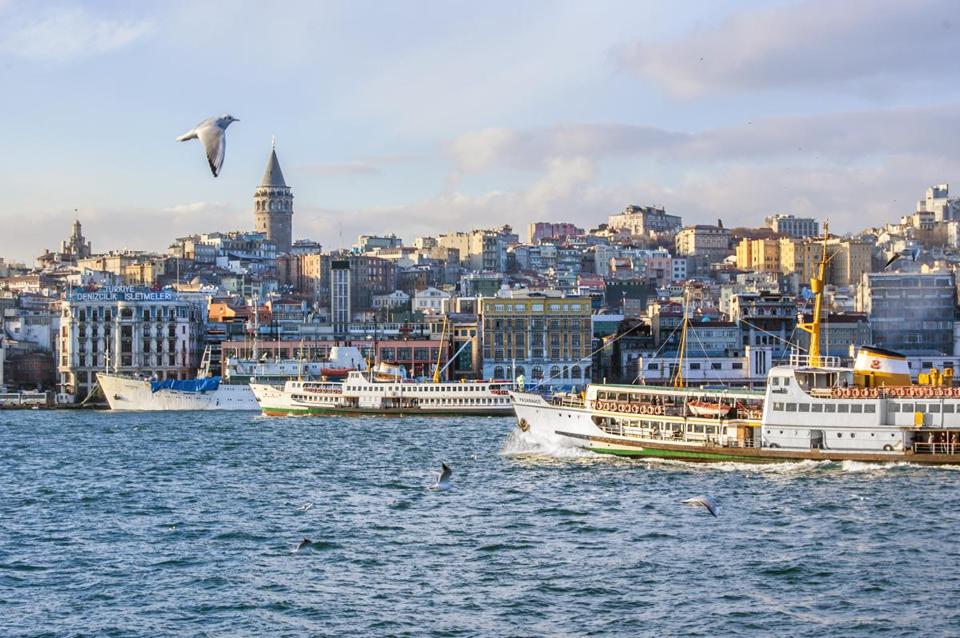CACI & SRSP Silk Road Paper by Svante E. Cornell and Halil Magnus
Karaveli, October 2008, 75 pp. Download at:
Summary
In October 2008, The Turkish republic celebrates its eighty-fifth anniversary. By early November, seventy years have passed since the death of the founder of the secular and unitary republic, Mustafa Kemal Atatürk. These anniversaries coincide with a defining moment in the history of the Turkish republic. Severe ideological tensions have erupted as traditional republican notions about the role of religion in society and about the nation-state have come to be increasingly challenged. In 2007 and 2008, Turkey was shaken by a regime crisis in which the ruling Islamic conservatives of the Justice and Development Party (AKP) were pitted against the secular opposition in other parts of the state establishment and in civil society. The decision of the constitutional court in the summer of 2008 not to close down the AKP marked the end of the acute crisis, although not of the age-old struggle over the identity of Turkey.
Internal as well as external dynamics underpin the power of the Islamic conservatives. Having been wielding significant power in society for a long time, the Islamic movement has come close also to achieving the goal of controlling the state. By all accounts, with the survival of the AKP, Turkey has passed a critical threshold.
From a Western policy perspective, there are two basic questions to be asked about Turkey. The first concerns the perceptions of the nature of Islamic conservatism: to what degree is the assumption that guides U.S. and European policy – that it is a force for reform that will make Turkish society more democratic, securing Turkey as a Western asset – ideologically as well as strategically warranted? The second concerns how the forces of secularism are to be conceptualized. Notably, how is the military to be understood? How can it be predicted to act as Turkey becomes a country dominated by Islamic conservatism?
In the decade ahead, what kind of a Turkey can we expect? In particular, what are the implications of religious conservatism and secularism, respectively, for democratization and for Turkey’s foreign policy orientation? While trying to fathom what the future may hold, how the republic that will be celebrating its 100th anniversary in 2023 may come to look like, this study has also taken stock, in rough outline, of the Kemalist experiment. How that experiment is ultimately understood and judged has an importance that transcends the borders of Turkey.
The forces of secularism and religious conservatism, of republican nationalism and ethnic separatism, pull the country in opposite directions, straining national cohesion, making political stability elusive and the securing of democracy a still more difficult challenge. Turkey presents a very specific case, which fits neither into a European nor a Middle Eastern framework of historical development. Hence, the exercise of predicting its future trajectory is scarcely sustained by any helpful analogies. The central question is how Islamic conservatism will develop, whether or not it will encourage a kind of Islamic reformation – an Islamic reconciliation with Enlightenment values – and secondly, whether or not it will be able to hold the nation-state together. Obviously, the future relationship between Islamic conservatism and secularism will not be determined solely by the internal developments in Turkey. Yet, as the attempts to “redefine” secularism and the description of secularization as a “societal trauma” show, the Islamic conservatives still have a long way to travel before making their peace with the conceptual leap of thinking about politics in exclusively human terms, with the break with political theology.
The co-existence of two divergent worldviews in society, religious conservatism and secularism, will inevitably continue to generate friction and furnish Turkish politics with a defining context for decades to come.
Neither religious conservatism nor secularism will be wished away; both are sociologically deeply rooted, and neither can in the short run be expected to prevail altogether over the other. The co-existence of competing value systems, while creating tensions, also signifies that Turkish society is inherently pluralistic, multi-culturally heterogeneous to an extent that it is difficult to envisage that an attempt to establish an authoritarian system – be it of a religious or a secularist nature – could succeed. However, Turkey seems destined to become a more markedly religious and conservative country, although secularism will not have disappeared as a societal force to be reckoned with. Presently, religious conservatism undoubtedly has the upper hand, and the historical trend since the 1950s is on its side. Meanwhile, it is misleading to describe the Turkish state as having been staunchly secularist in the past half century. In fact, the state has continuously sought to accommodate Islam, while secularism, on the other hand, has not been tended to.
An important conclusion is therefore that the military should not be assumed to have an unwavering commitment to secularism, even if it is obviously not insensitive about the issue. However, the military has little choice but to adjust to a changing societal environment in which religious conservatism is on the ascendancy. In addition, the Kurdish question provides the ground for a possible, durable reconciliation between the military and political Islam, as the latter has proven itself capable of securing the loyalty of a substantial portion of the religiously conservative Kurdish population. It is however an altogether different question to what degree an Islamic conservatism that appeals to the Kurds will remain as attractive for the Turkish majority. An ethnic Turkish nationalism that excludes the Kurds could be in the process of evolving at a popular level as a reaction to the PKK’s continued attacks on the Turkish military and its acts of terrorism.
In the long run, it is unlikely that Islamic conservatism would turn Turkey into a more Western-oriented nation. Although Turkey will not “break” with the West strategically, the ties between it and the West are bound to become weakened. The growing Islamicization of society will inevitably lead to a concomitant cultural estrangement of Turkey from the West in general, with possible strategic repercussions. The common ground of shared values which sustains the special relationship between the U.S. and its European allies will in that case be increasingly lacking in the U.S.-Turkish relationship. That will make the relationship, although likely to endure and not necessarily to cool in strategic terms, more vulnerable to mutual misunderstandings and tensions.
One of the AKP’s major accomplishments has been to shed the anti-European baggage of the Islamic movement. However, the AKP’s enthusiasm for European harmonization reforms had already decreased by the end of 2004. The road ahead for Turkey’s relations with the EU is nevertheless unclear, given the multitude of developments both in the EU and in Turkey that could derail it.
Over the coming decade, the twin western vectors that constitute the bedrock of Turkish foreign policy – the relationships with the United States and the EU – are unlikely to unravel. While the Eastern vocation – whether in the Middle East or in the Turkic world – will play a growing role in its calculations, the Turkish leadership is unlikely to shed its primary Western orientation. That does not mean, however, that the bonds connecting Turkey to the West will strengthen; indeed, there is a substantial risk that if left untended, they may weaken.
Turkey’s role as a regional force will depend on whether the country will be able to overcome its two existential divides – the issues of religion and ethnicity. Only a Turkey at peace with itself is likely to assume the role of a regional power which the West, most prominently the United States, has been encouraging it to do. Yet such a role is complicated by the essentially reactive nature of Turkish foreign policy, itself a result of the multitude of developments in highly varied bordering regions that affect Turkey, and make it difficult for Ankara to pursue a proactive policy based in a coherent strategy. To become a true regional power, Turkey will have to overcome that limitation.
From the limited overview conducted in this study, a great number of different scenarios for Turkey’s future development could be derived. This study proposes three major scenarios, which put most of their attention to the likely domestic development, while taking into account the likely interaction of internal politics with external challenges.
The first scenario – a more conservative Turkey – in principle constitutes the extrapolation and continuation of the trends that have been observed during the past decade, which have seen the crumbling of secular politics and the rise of a dominant religious conservatism in both society and the state. The second – a democratic reconciliation – assumes that the AKP, like other dominant political movements, is likely to crumble under its own weight as a result of a sclerosis of power, leaving room for yet another redefinition of the political contest between the competing ideologies of religious conservatism and secularism. The last scenario – a return to military stewardship – could occur if the Islamic conservative movement overplays its hand. It is the least probable scenario.
Turkey at 100 will in many ways be recognizable to observers witnessing its 85th birthday. The greatest surprise would be if the republic at 100 will have broken with its long-standing traditions and succeeded in developing a truly secularizing ethos.






